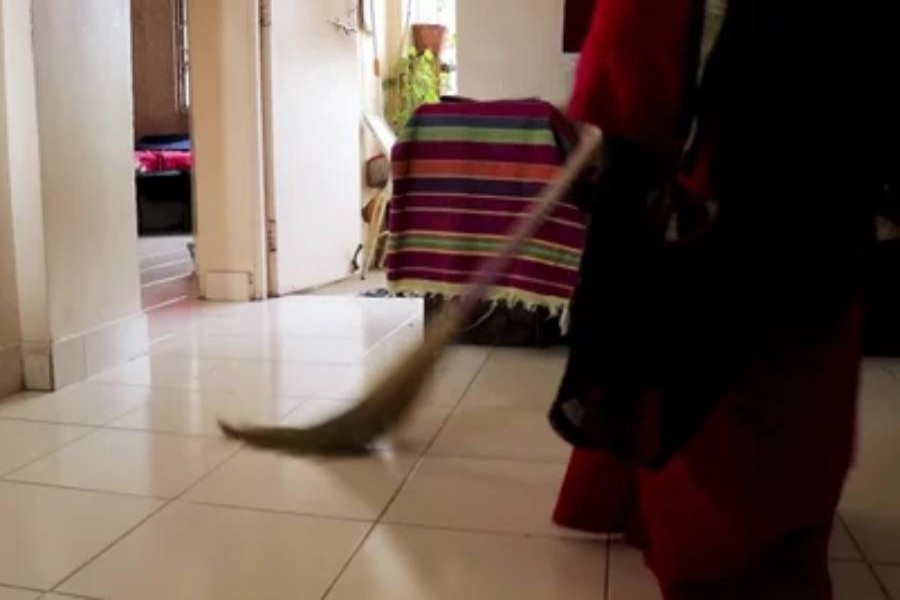She is one of the four million slum dwellers working as a typical part-time domestic help in the capital. She has decided to leave behind the job of a 'bua' forever. In this inhospitable city the majority of them, excepting teenage and barely adult girls engaged in this demeaning service, lose their names to this derogatory common nickname.
She made it clear to the lady of the house only a few days after her employment that she did not like at all to be called a 'bua'; rather she would like to be addressed as Ruma, her shortened name by which her father called her. This shows she has a character of her own different from many like her. But this is just a tip of her character. What makes her unique is her absolute honesty. On many occasions did she return money and other valuables found on the floor while sweeping. She could get away with a sizeable amount of money, but never did so.
Now this middle-aged woman has decided to leave Dhaka for her ancestral home. Let it be noted here that her husband left her with six children years ago. This forced her to migrate to Dhaka for an employment as a domestic help. Her struggle for survival is like millions of her kind. No, she is not going back to her village because of her lack of employment here. She has built a two-room brick-walled house with tin roof on a piece of land her father donated her.
Hers is a story of will power, struggle, sacrifice and honesty. Currently her income is Tk 14,000 a month. But she used to send Tk 10,000, paid Tk 2,000 for her rented shanty and the rest Tk 2,000 was her living cost. Not even Tk 100 for daily fooding! Isn't it unimaginable in this time of high inflation? In fact, the majority of domestic workers abandoned by their husbands go through such trial and tribulation and deprive themselves of the required food.
Of course, she was not without blemishes. She is needlessly argumentative and headstrong. At times, she would not listen to reason and perform chores shabbily. This might be because of her exhaustion. But paymasters are unlikely to tolerate defiance and casual performance.
In fact the years of voluntary deprivation have told on her body. She can no longer toil like before. Her earlier decision to work at as many houses as she could is now taking its revenge on her. She vowed to herself to save Tk 10,000 a month even if it meant curtailing her cost on food unaware that this will leave her debilitated and with hardly any energy.
Well, she saved the money for her house that cost Tk 400,000 but at a huge price. Now she is overcome with breathing problem as she sweeps or mops floors. Lately she was taken ill several times and therefore wants to say goodbye to this city that has provided her with a means of income but in exchange exacted so much from her.
Now she has her elder sons to help her. The eldest aged 22 is employed at a factory and his teenage brothers also earn a pittance. But education eludes them. She will reunite with her younger sons in her village but how will she survive there? The Tk 10,000 savings will not be there. Moreover, instead of two, there will be three mouths to feed. She has to go for her shelter built but in this period of crisis, it is quite challenging to provide for a family of seven, six of whom are in their growing stage.
Her sons' income may prove too meagre for the purpose. Also, the boys will be adult enough soon to have their own family. The prospect is certainly not bright. When poverty bites too deep, even the mother who sacrificed so much becomes a burden. There were several instances when old and ailing mothers were left abandoned on streets and in remote places. Let this honest woman and doting mother not suffer such an ignoble fate.


